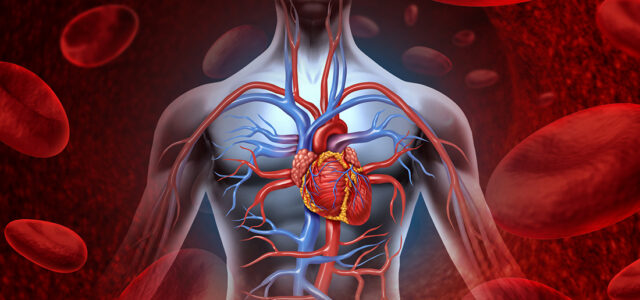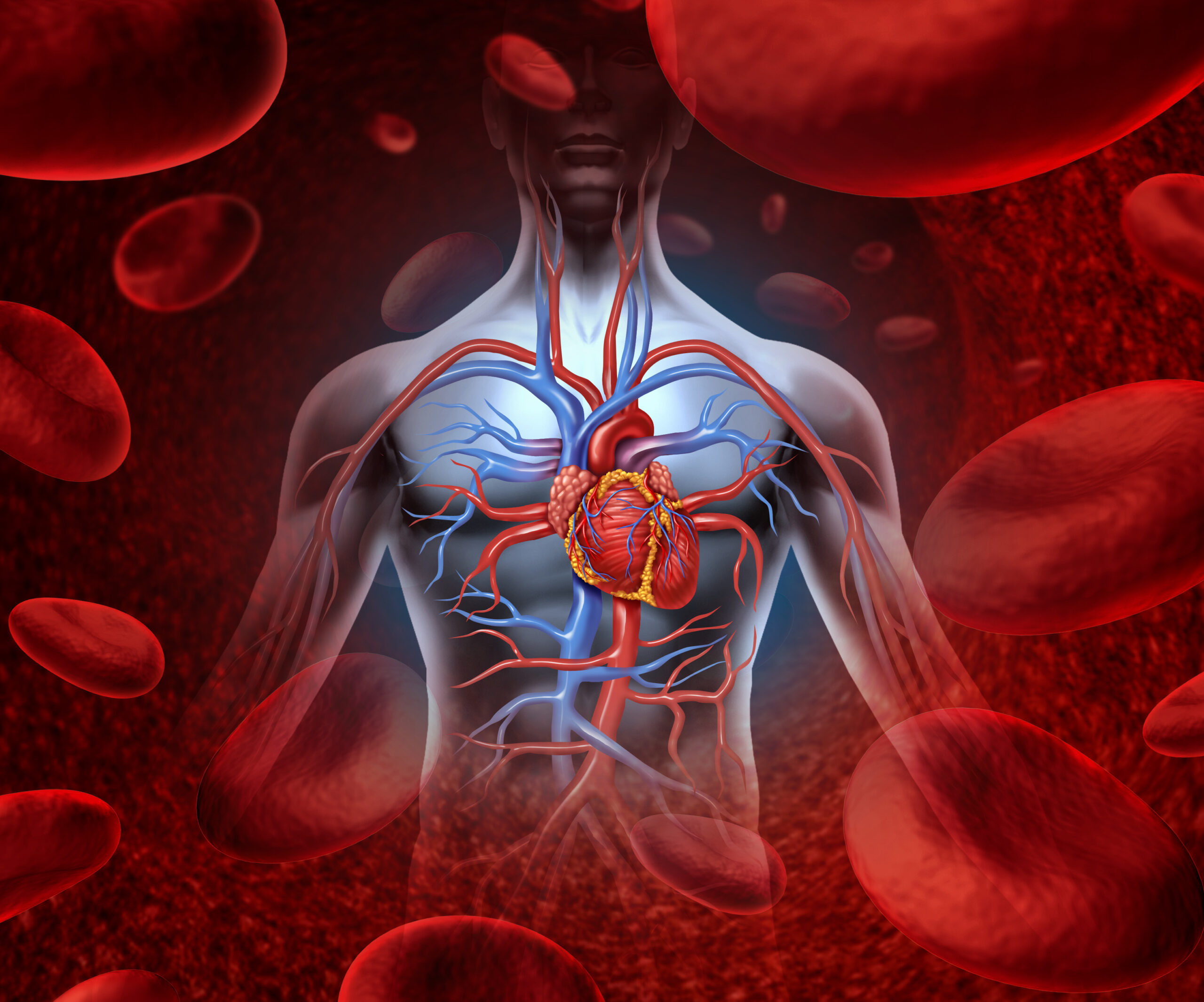Call for your appointment today 914-666-4665 | Mt. Kisco, New York

by Daniel J. Cameron, MD MPH
Fatal Lyme carditis is rarely identified. In reviewing five post mortem cases, Muehlenbach and colleagues found that Lyme disease was not suspected for one patient who complained of episodic shortness of breath, while the second patient tested negative for Lyme disease. Two other patients did not seek medical care. Details regarding the fifth patient were not released.
 Ultimately, two case patients were diagnosed during unexplained-death investigations at the Centers for Disease Control and Prevention (CDC). Lyme disease was suspected in two of the other cases by cardiac pathology at a tissue bank transplant service. Muehlenbachs and colleagues reassure the readers that cardiac tissue was not transplanted. [1]
Ultimately, two case patients were diagnosed during unexplained-death investigations at the Centers for Disease Control and Prevention (CDC). Lyme disease was suspected in two of the other cases by cardiac pathology at a tissue bank transplant service. Muehlenbachs and colleagues reassure the readers that cardiac tissue was not transplanted. [1]
Autopsies reveal several findings
Spirochetes were present in the heart on all 5 cases. When using immunohistochemistry (IHC), spirochetes were found “within the myocardial interstitial infiltrates, in the subendocardium, and occasionally in pericardial tissue in association with lymphohistiocytic infiltrates.” Muehlenbachs adds, “Rare spirochetes were seen in the leptomeninges of two cases by immunohistochemistry.”
All 5 cases lived in Lyme-endemic areas. Patients resided in counties with a high or moderate incidence of Lyme disease including, New York, New Hampshire (with recent travel to Connecticut), Massachusetts and Indiana.
All 5 cases reportedly engaged in outdoor activities. “Two patients had known exposure to ticks, and one patient reported a recent bite.”
None of the 5 cases met the CDC surveillance case definition for Lyme carditis. This definition includes: recurrent, brief attacks (weeks or months) of objective joint swelling in one or several joints; lymphocytic meningitis; cranial neuritis; radiculoneuropathy; encephalomyelitis; acute onset of high-grade (2nd-degree or 3rd-degree) atrioventricular conduction defects, and myocarditis.
Only 1 of the 5 cases underwent serologic screening for Lyme disease and the results were negative.
All 5 cases were symptomatic prior to their death. “A prodrome was reported for each of the patients that included the following: non-specific viral-like illness, malaise, shortness of breath, and anxiety,” according to Muehlenbachs. “One of these patients also had joint and muscle pain, and the other two patients had joint pain for an unknown duration.”
“No dermatologic lesion was documented or reported for any of the patients, although one patient was evaluated in an emergency department 1 month before death for an arm lesion diagnosed as a possible spider bite from which methicillin-resistant Staphylococcus aureus was isolated in culture.”
“Providers should consider Lyme disease in patients who have cardiac symptoms and exposure in an endemic area.” [1]
All 5 cases were seropositive post mortem according to the CDC’s two-tier criteria. “One sample met both IgM and IgG Western Blot (WB) criteria, with two of the three IgM bands and 6 of the 10 IgG bands reactive. The four remaining samples were positive by IgM WB criteria only, although three were nearly IgG positive with 4 of the 10 bands reactive,” states Muehlenbachs.
Underlying cardiac disease may have played a role in 3 of the 5 cases of sudden cardiac deaths associated with Lyme disease, Muehlenbachs points out, since there was significant underlying heart disease present in two patients, and an additional patient had moderate atherosclerosis, discovered at autopsy.
Physiological cardiac stress was considered a potential factor in 2 of the 5 cases. “In the other two patients, who were otherwise healthy, a degree of physiological cardiac stress likely was present: the woman had given birth 6 months previously and the man was a physically active outdoor enthusiast,” according to Muehlenbachs.
These pathologic findings provide insight into the possible cause behind sudden cardiac deaths associated with Lyme disease. “The findings support the proposed disease mechanism of spirochete cardiac tropism during early disease dissemination, the infiltration of cardiac tissue by inflammatory cells, and involvement of the conduction system, which likely mediates sudden cardiac death.” [1]
Is early diagnosis and prompt treatment possible?
“Early diagnosis and prompt treatment for Lyme carditis can be life-saving,” according to Muehlenbachs. “Health care professionals should evaluate all patients with suspected Lyme disease for cardiac signs and symptoms, and obtain an electrocardiogram promptly if carditis is suspected.” Furthermore, “diagnosis is based on clinical suspicion and serologic testing, with the caveat that serology testing may be falsely negative in a patient with recent illness onset.” [1]
Fishe and colleagues describe how early diagnosis and treatment helped save the life of a 15-year-old African-American girl with Lyme carditis. [2] The patient was hospitalized after a 3-day history of intermittent retrosternal and epigastric pain. After treatment was initiated, she developed a heart block. Tests for Lyme disease were positive and she was diagnosed with Lyme disease-associated myocarditis.
The adolescent was empirically started on doxycycline and was concurrently treated with milrinone infusion for afterload reduction and intravenous furosemide for pulmonary edema. Her EKG changed to first-degree heart block by day 2 and resolved completely on hospital day 3.
She recovered and was discharged home on hospital day 7 on oral furosemide, enalapril, and doxycycline, according to Fishe and colleagues.
However, another adolescent was not so fortunate. He died suddenly from undiagnosed Lyme carditis, following complaints of flu-like symptoms. The case is discussed in another All Things Lyme blog, Relying on a Negative Lyme Disease Test Can Prove Deadly.
“In patients with Lyme disease who complain of cardiopulmonary symptoms, clinicians should have a low threshold for obtaining an EKG to evaluate for Lyme carditis,” Fishe points out. Furthermore, clinicians should take note that in “children and adolescents, respiratory and gastrointestinal complaints, with or without chest pain, are the most frequent presenting symptoms.”
References:
- Muehlenbachs A, Bollweg BC, Schulz TJ et al. Cardiac Tropism of Borrelia burgdorferi: An Autopsy Study of Sudden Cardiac Death Associated with Lyme Carditis. Am J Pathol, (2016).
- Fishe JN, Marchese RF, Callahan JM. Lyme Myocarditis Presenting as Chest Pain in an Adolescent Girl. Pediatr Emerg Care, (2016).




Thank you for your detailed analysis and summary of the article on lyme carditis.
My husband passed away unexpectedly July 15, 2015 in Minnesota. With the help from the Minnesota Dept of Public Health and CDC is was discovered in biopsy of his heart to be Lyme’s Carditis.
Sorry for your loss. Thanks for sharing. BTW I grew up in Minnesota.
My son has suffered from Lyme disease, Bartonella, babesia & possibly several other co-infections for the past 13 years (he’s 33). He was misdiagnosed for 11 of those years. At this time, he is not on any antibiotics or prescription meds, only vitamins and supplements ( antibiotics cause him to have severe herx reactions) He suffers daily with joint pain, headaches, fatigue, mood swings, rashes, etc., but recently, he has developed chest pain. It was severe enough Thursday night that he went to the ER where he was admitted to the hospital for tests & observation. EKG, ECG & bloodwork were all normal. He is still having chest pain (it comes & goes, but he describes it as very sharp on the left side right over his heart. He also has neck & jaw pain on the left side) He has an appointment with a cardiologist Monday, but most doctors in our area (Alabama) are clueless about Lyme disease. He has been to a Lyme specialist in Washington DC, but it’s so far & expensive, it’s hard for him to go as often as he needs too. Any suggestions/advice would be greatly appreciated!
It can be difficult to see your son struggle with his illness for so many years. You should ask about autonomic issues during your cardiologist visit. Autonomic issues are common in tick-borne diseases. I have faced the same challenge in my practice. It can be difficult to tell what options are available.
Dr. Cameron- I was diagnosed with Lyme (short term), Bartonella and Babesia (both long term, approx 10-15 years) last August and have been on multiple antibiotics ever since. Diagnosed after 4 days in ICU for Sepsis. I have been having chest pain off and on for several years, and could not identify if it was related to lungs or heart, since I also get costochondritis. Your article has convinced me to see a cardiologist – the discomfort I’m currently feeling has been persistent over the last 4-5 days. Thank you!
Most carditis cases have been early. They have looked much at cardiac issue years after onset. I am happy to hear you are including a cardiac evaluation..
Hi Dr. Cameron – I have had Lyme in 1998, 2009 and 2012, each with significant neurological effects. A few years ago, I was being medically cleared for bladder surgery and a routine EKG showed a RBBB that had never existed before, told it was highly likely to be related to the Lyme. I had a complete cardio work up and was told I was fine but that I needed a yearly evaluation. For 7 years each EKG shows no change in the block. Should I continue these workups? It seems unlikely that anything will develop at this point?
It is unlikely, but it is up to cardiologist when to stop followup.
Dr Cameron — According to a recent echocardiogram I have an “infiltrative process” going on in my heart, primarily in the left ventricle and septum. Docs are considering cardiac ATTR amyloidosis but my symptoms don’t exactly fit. Because of kidney issues I cannot have MRI with Gadolinium to take a closer look. I believe the infiltrate is related to my NEVER treated Lyme disease from 1982. I was bitten in central Florida which at the time was considered to be free of ticks that carried Lyme disease. I developed the classic bull’s eye rash and severe flu-like symptoms about 2 weeks later. My doctor refused to treat me for Lyme disease because he said we didn’t have the right kind of ticks in this area, and because my rash was itchy. I have been chronically ill since, but until now I thought I had avoided any life threatening late complications. Now I’m not so sure. My doctors and I will keep exploring the amyloidosis issue, but I would very much appreciate hearing your thoughts on the possibility that this infiltrate is due to late Lyme disease, and if so, how to test for it and how to treat it at this late date. Thank you.
I have shared what I have read from the literature. I have not seen “an infiltrative process” but the studies are small. It is also possible to have Lyme disease and another illness. BTW Ticks are in Florida and they can itch. I typically add a Lyme disease evaluation to your workup.
When someone passes unexpectedly, or not, with heart related issues, would it be routine to check for Lyme or is it something that would be an obvious thing to determine when looking at a heat postmortem? Would family need to ask for Lyme to be looked for? Two family friends have passed away from heart issues after being told “there is nothing wrong.” One was an 18 year old boy; the other a 46 year old woman. I am always curious when “there is nothing wrong” if Lyme could have played (or is playing) a part. It concerns me, as I was “treated” for Lyme 6 years ago (a 30 day doxycycline routine- never retested) and have chest pain, but got checked and told “there is no issue.” I have been learning much about Lyme through your site, and appreciate the information. Thank you for spearheading the research and pushing the importance of Lyme knowledge.
I have not seen Lyme checked after death on a routine basis. Lyme carditis has been documented on autopsy. Lyme carditis manifesting as a conduction problem would not evident on autopsy. Also, autopsies are often not performed.
My mom passed away suddenly at the age of 53. The week before her death she had flu like symptoms. A year and a half before her death she was positive with lymes after finding a bullseye on her stomach. Since that time, after antibiotics the tests came back negative. They lived in CT in a heavily wooded area. Her autopsy came back:unknown. In my heart I believe she passed away from lymes. When I called to ask questions about autopsy my calls were never returned. It has been almost 16yrs without her, my best friend & I can’t help but wonder everyday if this could have been prevented? Who can I ask these questions too?…What can I do to help prevent something like this happening to someone else in the future?
It is always difficult to determine whether a tick-borne infection is present after the fact. It is worse when the person is reluctant to seek help. I have patients who are reluctant to seek help.
I believe patients are reluctant to seek help after they have been turned away many times because medical staff either can’t find a reason for their symptoms, or the patient has been made to feel that it is “all in their head”. Better testing is needed in North America and should be first line of defense when seeking help. It is awful when presenting symptoms to the doctor and knowing in your heart that something is wrong, and being dismissed because you may not fit neatly into the box of what symptoms you are “supposed to have”…ie. bullseye rash. (not always present).
I agree.
My son, 37 years old, just recently diagnosed with five bands of lyme. He is having heart palpitations and runs. We have seen a cardiologist before diagnose. Are the PVC’s considered dangerous?
Many Lyme disease patients in my practice have palpitations. A few have PVC’s. I rely on the cardiologist to determine if a PVC is an issue. I also make sure to look closely for evidence of a persistent tick-borne infection.
I was diagnosed with severe lymes meningitis 5 months ago, after 5 weeks of antibiotics the symptoms associated with the meningitis where gone, yet a combination of very frequent pvc(more than 20% of all my heart beats) and pots syndrome emerged. My heart rate is often very high and fatigue and brain fog common. Though I’ve had heart mri and cat scan and ultrasound that say my heart is physically normal…My symptoms are slowly getting worse. Ideas? Many many thanks. Jeffrey
I do not typically find cardiac problems by heart MRI, CT or ECHO in my practice yet they can still have autonomic related illnesses including POTS. I look a second time for a persistent tick borne infection. Call my office at 914 666 4665 if you have any questions.
I do not typically find cardiac problems by heart MRI, CT or ECHO in my practice yet they can still have autonomic related illnesses including POTS. I look a second time for a persistent tick borne infection. Call my office at 914 666 4665 if you have any questions.
I was diagnosed with severe lymes meningitis 5 months ago, after 5 weeks of antibiotics the symptoms associated with the meningitis where gone, yet a combination of very frequent pvc(more than 20% of all my heart beats) and pots syndrome emerged. My heart rate is often very high and fatigue and brain fog common. Though I’ve had heart mri and cat scan and ultrasound that say my heart is physically normal…My symptoms are slowly getting worse. Ideas? Many many thanks. Jeffrey
Is it possible after having an ecg to be told you have a healthy heart although it has electrical issues that create occasional pacs and pvcs and an atrial tachycardia? Reason I ask is I treat Lyme with rife and my heart rhythm is normal apart from occasional episodes of the aforementioned and I’m concerned that this is a more serious problem for me. I’ve seen a cardiologist (EP) for 20+ yrs, had an ablation for a former svt and was told heart issues such as carditis are early stage?
I’m not sure of the medical terminology in this article, but could Lyme cause fluid around the heart and lungs?
I have had Lyme disease patients with minor pericardial fluid around the heart on referral to the cardiologist but it has not been more than patients without Lyme disease.
I have never had any heart palpitations or skips or flutters (except when I tried keto, and that resolved once i figured it out correctly) until using herbals for lyme and co. Once I worked up to 30 drops for the 3Bs, it began. Burbur Pinella and adjusting magnesium, sodium, and potassium have helped. I stopped the tinctures recently, and a week later, all heart symptoms gone. I have chronic lyme, but very few of the symptoms (mainly CFS and heat issues).
An EKG was normal, but the is only a brief test and I had no skips that afternoon.
I don’t understand this. Is this lyme carditis or something worrisome? Or is this a normal part of the detox process and harmless?
Thank you! Josie
I would advise my patients to include their cardiologist in the evaluation.